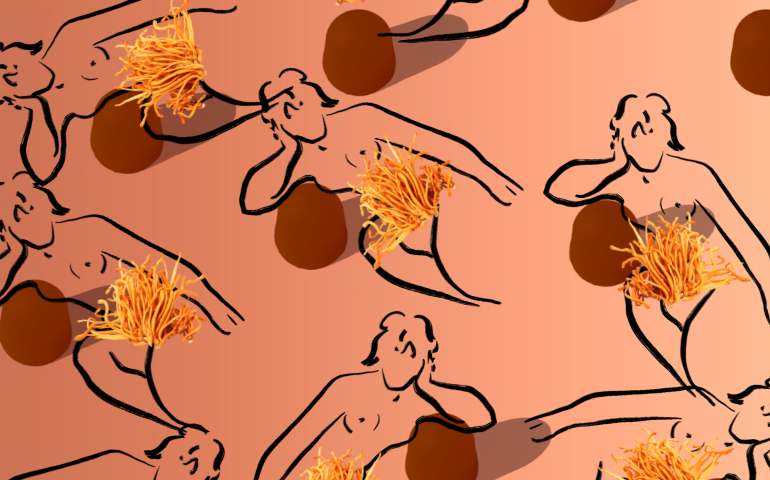Nootropics, also known as "smart drugs" or cognitive enhancers, are a class of compounds that can improve cognitive function, such as memory, concentration, and creativity.
During perimenopause and menopause, our hormonal changes affect cognitive function, including memory loss, difficulty concentrating, and the almighty brain fog.
Taking a supplement with nootropics can help support women's brain health during this time by providing additional support for brain function.
A refresher on functional mushrooms:
These are a group of mushrooms that have been used for centuries in traditional medicine for their medicinal properties.
Functional mushrooms can be particularly beneficial for women during perimenopause and menopause due to their adaptogenic and nootropic properties.
Certain functional mushrooms, such as Lion's Mane and Cordyceps, have been shown to support cognitive function, reduce inflammation, and alleviate stress and anxiety. Additionally, Reishi mushroom has been shown to have hormone-balancing properties and may help relieve menopausal symptoms such as hot flashes and night sweats.
Here are some examples of functional mushrooms that are in SO MUSH SUPPORT and their nootropic components:
Lion's Mane (Hericium erinaceus) - Lion's Mane mushroom contains compounds called erinacines and hericenones, which have been shown to stimulate nerve growth factor (NGF) production in the brain. NGF is a protein that plays a key role in the growth, maintenance, and survival of nerve cells, and is involved in learning, memory, and cognitive function.
Reishi (Ganoderma lucidum) - Reishi mushroom contains triterpenes, polysaccharides, and other compounds that have been shown to have anti-inflammatory and antioxidant properties. These compounds may help protect the brain from damage caused by oxidative stress and inflammation.
Cordyceps (Cordyceps militaris) - Cordyceps mushroom contains cordycepin, a nucleoside that has been shown to have nootropic and anti-inflammatory properties. Cordycepin has been shown to improve cognitive function and reduce inflammation in the brain.
Chaga (Inonotus obliquus) - Chaga mushroom contains betulinic acid, which has been shown to have anti-inflammatory and antioxidant properties. Betulinic acid has also been shown to stimulate nerve growth and protect against neurodegenerative diseases.
Shiitake (Lentinula edodes) - Shiitake mushroom contains compounds called ergothioneine and eritadenine, which have been shown to have antioxidant and anti-inflammatory properties. These compounds may help protect the brain from damage caused by oxidative stress and inflammation.
Check out SO MUSH SUPPORT for an in-depth dive about each of the 10 mushroom's properties.

